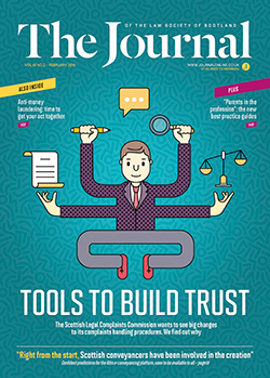Legal IT: the potential of blockchains
This article examines the concept of blockchains and how they could be utilised by law firms.
Most people at this stage will have heard of Bitcoin – classified by the US Treasury as a decentralised virtual currency. Launched in 2009, it is the focus of a huge amount of investment, with $1 billion predicted to be invested by the end of 2015.
Whilst Bitcoin is a fascinating topic, and I encourage whoever reads this to look into it further, the really exciting topic is the technology behind Bitcoin – the Blockchain.
The technology blog Re/code provided an excellent analogy for the blockchain in a recent article [no longer at this link, but there is now a Journal feature here]. Imagine that you were walking down a crowded street and a piano fell from the sky and crashed to the ground. You and a dozen others witnessed this. Imagine you were then all separated, interviewed and an infallible lie-detector was present.
If each of you provided the exact same story, down to the smallest detail, would there be any doubt that the event occurred? Perhaps, though it’s likely to meet the burden of proof in court.
This is the concept behind the blockchain – a distributed consensus model. In more human terms, it’s a record of events that is held by every party who uses it. It can only be updated with the majority consensus of the other participants, and once updated, the event cannot be erased. In other words the blockchain is a permanent and verifiable chain of events.
It would be trivial to create a system which monitors the blockchain for a certain transaction appearing, and for taking action accordingly.
How it might be used
The first concern here is privacy. If blockchains were to be implemented for commercial contracts, neither party would want sensitive details such as price or particular terms to be publicly available. This can be circumvented by simply recording that the transaction took place without compromising confidential details.
The potential to replace traditional, paper-based transactions is obvious. Each firm will hold a copy of a signed agreement. In a more Scottish example, the Books of Council & Session operate as an archaic version of blockchain technology, where the parties can irrevocably record a transaction once completed. The details recorded are public, but this can be circumvented by means of back letters, etc. Selachii, a law firm in London , has already started to do this, using Stash, a Texan startup specialising in the area.
Taking the idea a step further, the ability to report the conclusion of contracts or other transactions by means of blockchain allows for the digitisation of contractual performance, or “smart contracts”, as coined by Nick Szabo. The team at the internet platform Ethereum have already made a programming language to facilitate this.
Another potential use would be recording all of our property transactions via blockchain. Anyone who has practised conveyancing will understand the occasional difficulty in tracing ownership of a property. By being able to review a recorded and verifiable chain of ownership which does not carry the risk of being lost, lawyers and clients can save a vast amount of time and money. There is certainly scope for the Registers of Scotland and the English Land Registry to implement this technology to record future property deals.
Of course, this technology is at an extremely early stage but it offers enormous potential for rethinking how we record and take action on our transactions.
In this issue
- A trainee perspective on leadership
- Beyond the Bribery Act
- Legal IT: the potential of blockchains
- Directors: the parent over your shoulder
- Ten for starters
- Reading for pleasure
- Journal magazine index 2015
- Opinion: Daniel Donaldson
- Book reviews
- Profile
- President's column
- The big 4-0-0 approaches
- People on the move
- Balance in redress
- Pension allowances: the last chance
- E-conveyancing: the real deal
- Deeds of conditions: not dead yet
- Anti-money laundering: a call to action
- New challenges, new CEO
- Rape terms before the appeal court
- Another year of change
- Defending the abduction
- The right to snoop?
- Fond farewell
- Scottish Solicitors Discipline Tribunal
- Dilapidations: enforcing the bargain
- Title out of nothing
- Charged and ready
- Updates from the OPG
- The family way
- Conflict of interest: the questions still come
- Seeking growth
- Fraud: a battle of wits
- Light to a Safe Harbour
- Through the client's eyes
- Ask Ash
- Law reform roundup






